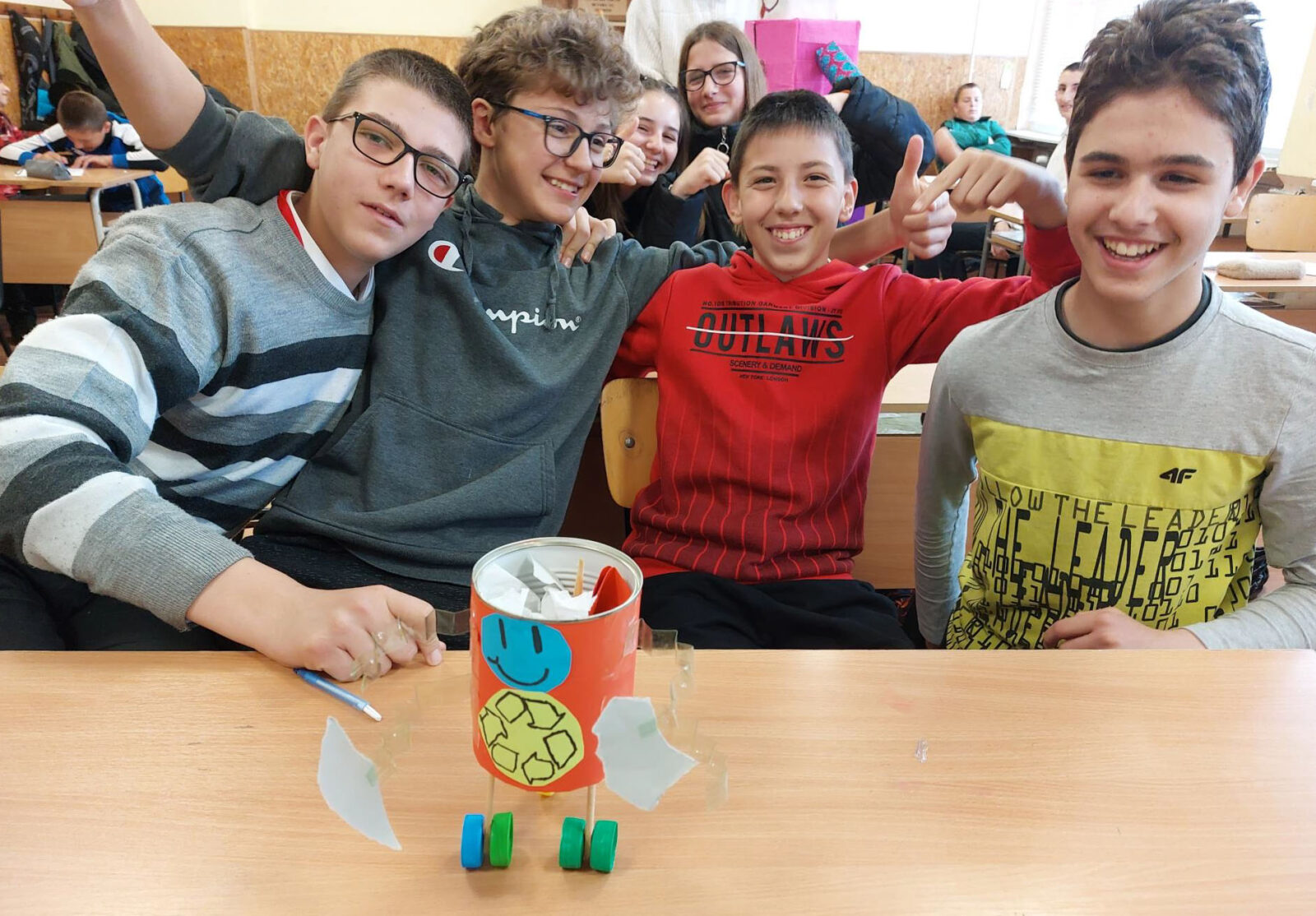The ‘Digital Skills for the Future’ program is approved by the Ministry of Education and Science.
The program is suitable for psychologists, educators, teachers, heads of the ‘Information and Communication Technologies’ department, pedagogical advisors. The program is interactive and develops digital competences and literacy by providing knowledge of basic concepts, looking at practical applications of artificial intelligence in life, supporting the development of skills to identify fake news, to tackle online hate speech and to protect personal data and privacy in a digital environment. The program includes 4 modules as well as one module related to practical application of learning through project development. Learning activities from the program can be successfully included in the lessons of various subjects. Participants are offered a lesson-based curriculum with many resources and interactive exercises for key digital knowledge and skills. The program is planned to be conducted in both face-to-face, online and blended form of learning.
5 topics are included:
- What is artificial intelligence? Defining and Recognizing Artificial Intelligence. Interdisciplinarity of artificial intelligence. Exercises: Smart piece of paper. Find smart objects. Engineering analysis. Humans vs. Machines.
- How does artificial intelligence work? Machine learning algorithms and steps. Facial recognition and basic concepts in programming. Applications of artificial intelligence. Exercises: Self-learning machine with Google. Testing the AI generator with images. Facial recognition by Scratch Lab.
- The world of artificial intelligence. Application of artificial intelligence. Ethical aspects related to artificial intelligence. Exercises: Artificial Intelligence for Good Causes. Myths about collaborative design. Dilemma Discussion Class Code of Ethics.
- Life on the Web. Internet literacy: disinformation, fake news, fact-checking and critical thinking. Fighting hate speech online. Privacy, Anonymity and Privacy Online. Digital citizenship. Exercises: Identifying fake news. Online hate speech. Anonymity and social behavior. A digital dictionary for participation and engagement.
- Methodological aspects of teaching and assisting students in the implementation of project activities.
Competencies to be acquired: Academic, Pedagogical, Communicative
Teaching methods: Training is delivered through a combination of methods including presentations, short video films, exercises, demonstrations and project work. Various activities and discussions are aimed at shaping the responsible use of digital technologies. The methods are selected to stimulate critical thinking and autonomy, but also dialogue and collaboration in creating a shared understanding of artificial intelligence. With access to the Internet, the training raises participants’ awareness of the real-world applications of AI technologies and their implications. The exercises help participants formulate hypotheses regarding the positive and negative impact that the adoption of AI-based tools can generate at a societal level and assert their position on ethical dilemmas.
Materials, technical and informational resources specific to the program: Participants receive a handbook with developed lessons “Digital Competences for the Future” to help them in their training and in their work with students.
Indicators of expected results The expected results are: the participants are theoretically, methodically and practically prepared to implement the program at school in a different form – in class or in extracurricular hours. These results are measured with the following indicators:
Advanced knowledge of AI-based technology and its technical applications.
Increased understanding of communication through social networks and the role of artificial intelligence in them;
A mastered methodology for teaching this digital skills school curriculum suitable for implementation across disciplines and in extra-curricular activities.
Number of hours: 16
Number of credits: 1
Method of completion: Test
Form of training: physically present and present in an electronic environment
Lecturers: Dr. Veronika Racheva and Aneta Kalcheva – Spasova
For more information and requests, please contact us: partners@partnersbg.org

